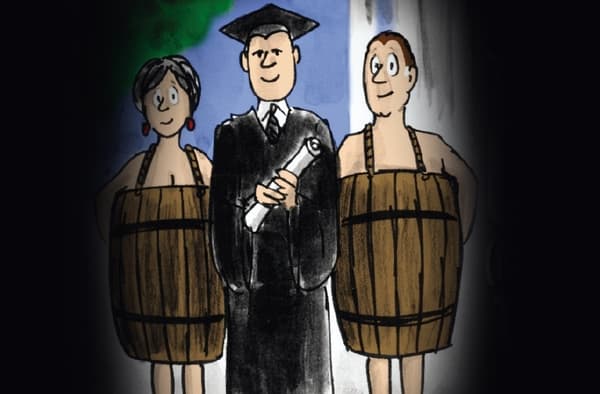
Higher Education
No need for college tuition increases
Jonathan Small | June 23, 2025
This year, legislators provided more than $1 billion in appropriations to Oklahoma colleges and universities. That negates any need for tuition increases.
The question is whether university leaders will admit it.
Unfortunately, college leaders don’t have a good track record of prioritizing affordability.
According to the U.S. Bureau of Labor Statistics, the price of college tuition/fees increased nationally by 1,518 percent from 1977 to 2024, which is close to twice the rate of inflation.
College officials often claim “cuts” in state funding force tuition increases. But Andrew Gillen, a research fellow at the Cato Institute’s Center for Educational Freedom, reviewed state funding for colleges in all 50 states from 1980 to 2023 and concluded that “state disinvestment is a myth.”
“At the University of Oklahoma, per-student tuition and fees rose 166%, the most of any flagship.” —The Wall Street Journal
Gillen found that state funding for Oklahoma colleges has dropped only $2 per student since 1980, and that tuition increases in Oklahoma far outpaced changes in state funding.
The Wall Street Journal found that between 2002 and 2022, enrollment at the University of Oklahoma increased 15 percent, but tuition increased by 36 percent even after adjusting for inflation. Once student fees were included, the combined rate of growth was even more dramatic and was the highest in the nation.
“At the University of Oklahoma, per-student tuition and fees rose 166%,” the Journal reported, “the most of any flagship.”
To add insult to injury, officials at OU have begun prioritizing out-of-state students over in-state students.
In the 2024-2025 school year, a majority of freshmen students at the University of Oklahoma were not from Oklahoma, accelerating a trend that has been ongoing for several years.
Colleges have plenty of funding. Perhaps it’s time to turn off the spigot.
Gov. Kevin Stitt and lawmakers increased Oklahoma colleges’ state appropriation by 7.29 percent, providing $1.1 billion. Most Oklahomans would view a 7 percent increase as a nice bump in pay, but college officials often act otherwise. Believe it or not, state college officials requested a 46 percent increase in state appropriations. Now, they may claim that the lack of such a huge increase forces a significant tuition increase.
Serious leaders disagree. At a recent press conference, Stitt stated, “My gut feeling is, no, we don’t need a tuition increase at this point. I don’t think we’ve gotten all of the efficiencies out of our universities, so I would encourage the boards to continue to look for efficiencies, look for the professors—the tenured professors—that maybe aren’t teaching as many classes as they should. So those are the things that I would continue to push before they did a tuition increase.”
Most Oklahomans agree with Stitt. Colleges have plenty of funding. If they hike tuition whether they get a major appropriation increase or not, then perhaps it’s time to turn off the spigot—and even for the Legislature to take back tuition-setting authority.

Jonathan Small
President
Jonathan Small, C.P.A., serves as President and joined the staff in December of 2010. Previously, Jonathan served as a budget analyst for the Oklahoma Office of State Finance, as a fiscal policy analyst and research analyst for the Oklahoma House of Representatives, and as director of government affairs for the Oklahoma Insurance Department. Small’s work includes co-authoring “Economics 101” with Dr. Arthur Laffer and Dr. Wayne Winegarden, and his policy expertise has been referenced by The Oklahoman, the Tulsa World, National Review, the L.A. Times, The Hill, the Wall Street Journal and the Huffington Post. His weekly column “Free Market Friday” is published by the Journal Record and syndicated in 27 markets. A recipient of the American Legislative Exchange Council’s prestigious Private Sector Member of the Year award, Small is nationally recognized for his work to promote free markets, limited government and innovative public policy reforms. Jonathan holds a B.A. in Accounting from the University of Central Oklahoma and is a Certified Public Accountant.